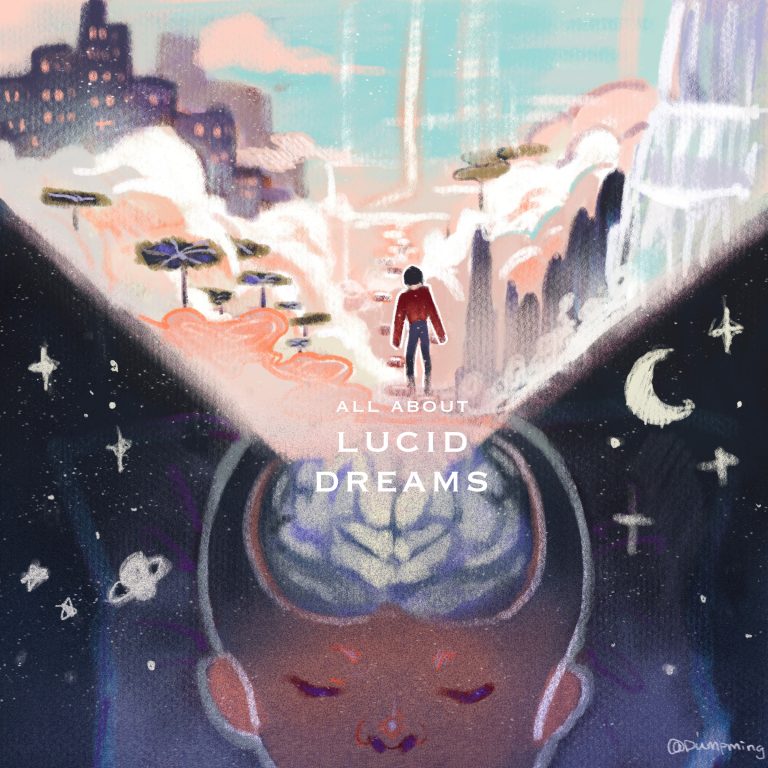Via Positive Creators
Most of the time, dreams are either entertaining or worrisome, we know, but let us drop some knowledge and tell you how they are super essential to our brains. How so? Our minds start sorting the day’s events in the long-term memory when we dream. So, yes, basically, dreams are a camouflage of our subconscious mind as it does all the serious work!
What are the types of dreams?
There are five types of dreams, and we think everyone has probably experienced all of them at some point. Also, we would like to remind you that EVERYONE dreams. There is no such thing as “I don’t dream”. What happens here is that some of us forget them, which is totally normal, so don’t worry.
Here are the types of dreams:
- Normal dreams are, plainly put, some usual dreams about people and experiences that we often forget. Remember those dreams that feel like déjà vu?
- Daydreams are the coolest as they don’t happen in our sleep. Instead, you just zone out in the middle of the day, visualising fake scenarios about realities from your past, present, or even your future.

Via ED Times
- In lucid dreams, you are in charge and completely aware of everything. These are really fun if you like going on adventures!
- False-awakening dreams can be a bit tricky. This type is extremely vivid to the point where you think that you’ve woken up, but you’re actually in deep sleep. Watch out for these ones; you don’t want to believe that you have falsely finished all your tasks, do you?
- Nightmares are a type of dream as well; they are just not one of the fun As you know very well, nightmares are disturbing and scary dreams that can feel incredibly realistic.
What can you understand from those dreams?
In case you didn’t know, dreams can tell us about our state of mind. For example, if you ever dream of someone’s death or any unfortunate events happening to you or a loved one, you’re not really foreseeing the future or anything; you’re probably just anxious about something. Knowing this, you may even trace the source of your anxiety and do something about it. Or, you can ignore it, your choice.
Another example is nightmares, in case you have recurring ones about something that really happened to you, that can be a sign of PTSD, which is definitely worth seeing a mental health professional about.
Bottom line is, guys, your dreams tell you a lot about your mental health, hopes, and fears. Therefore, give them some thought and “don’t sleep on them” (Pun intended).








